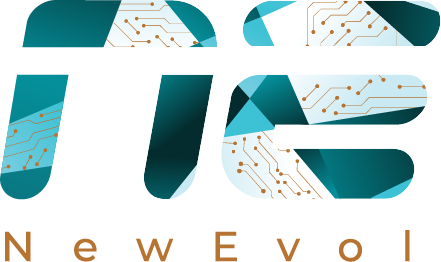Why Your Business Needs a Data Security Platform

In 2024 alone, India suffered over ₹22,845 crore in cyber fraud, a 206% increase from the previous year. High-profile breaches, like the Star Health incident affecting 31 million customers, highlight the urgent need for robust data protection.
The Digital Personal Data Protection Act (DPDPA) 2023 further enforces stringent compliance, requiring explicit consent, data access rights, and penalties for violations.
In this environment, a Data Security Platform (DSP) is not just a technical solution—it is a strategic imperative. By integrating encryption, access controls, threat detection, and compliance management, DSPs help Indian enterprises protect their digital assets, maintain regulatory adherence, and strengthen stakeholder trust.
This article explores why adopting a Data Security Platform is essential for mitigating risks, enhancing resilience, and supporting sustainable business growth in India’s digital economy.
The Growing Threat Landscape in India
India’s digital economy is expanding rapidly, but so is the cyber risk environment. Businesses across sectors—finance, healthcare, e-commerce, and government—face increasingly sophisticated attacks. Key trends include:
1. Rising Cyber Fraud and Financial Crime
- India witnessed losses exceeding ₹22,845 crore due to cyber fraud in 2024, a 206% increase from the previous year.
- Attacks such as phishing, business email compromise (BEC), and fraudulent transactions are becoming more targeted and complex.
2. Data Breaches and Sensitive Information Exposure
- High-profile incidents, such as the Star Health data leak affecting over 31 million customers, highlight vulnerabilities in data handling practices.
- Personal identifiable information (PII) and financial data are prime targets, increasing reputational and regulatory risks.
3. Regulatory Pressures and Compliance Risks
- The Digital Personal Data Protection Act (DPDPA) 2023 enforces stringent requirements for consent, storage, and processing of personal data.
- Non-compliance can result in heavy penalties, emphasizing the need for integrated data security solutions.
4. Ransomware and Targeted Attacks
- Ransomware campaigns are increasingly targeting Indian SMEs and large enterprises alike, demanding quick response mechanisms and resilient recovery strategies.
5. Cloud and Remote Work Vulnerabilities
- Rapid adoption of cloud services and remote work setups has expanded attack surfaces, making traditional perimeter-based security insufficient.
Key Benefits of a Data Security Platform
A Data Security Platform (DSP) offers Indian enterprises a unified approach to protecting critical information, ensuring regulatory compliance, and enhancing operational resilience. Key benefits include:
1. Comprehensive Threat Detection
- DSPs provide real-time monitoring and advanced analytics to detect anomalies, suspicious activities, and emerging threats before they escalate.
2. Regulatory Compliance Simplified
- Integrated compliance tools help organizations adhere to the Digital Personal Data Protection Act (DPDPA) and sector-specific regulations, minimizing legal and financial risks.
3. Data Integrity and Availability
- Platforms safeguard data against corruption, unauthorized access, and loss, ensuring business continuity through automated backup and recovery solutions.
4. Centralized Management and Visibility
- DSPs offer a single pane of glass for monitoring data flows, access controls, and security incidents across on-premises and cloud environments.
5. Scalability for Growing Enterprises
- Whether for SMEs or large corporations, DSPs scale seamlessly with increasing data volumes, user counts, and business operations.
6. Proactive Risk Mitigation
- By identifying vulnerabilities and providing actionable intelligence, a DSP allows businesses to act proactively rather than reactively.
Tailored Solutions for Indian Enterprises
Indian businesses face unique challenges in data security due to regulatory requirements, diverse IT environments, and rapid digital adoption. Data Security Platforms can be customized to address these specific needs:
1. Sovereign Data Compliance
- Platforms can ensure that sensitive data remains within Indian borders, aligning with DPDPA and government mandates for data residency.
2. Industry-Specific Security Controls
- BFSI: Protects financial transactions, customer data, and internal systems from fraud and breaches.
- Healthcare: Secures patient records, complies with privacy laws, and prevents ransomware attacks.
- E-Commerce & Retail: Safeguards customer payment information, loyalty programs, and supply chain data.
3. Cloud and Hybrid Integration
- Supports hybrid IT environments with seamless security across on-premises systems, private cloud, and public cloud infrastructures.
4. Adaptive Access and Authentication
- Implements role-based access controls, multi-factor authentication, and adaptive policies to minimize insider threats.
5. Threat Intelligence and Automation
- Leverages real-time threat intelligence and automated workflows to detect, respond, and remediate incidents faster.
Implementing a Data Security Platform: Best Practices
Deploying a Data Security Platform effectively requires strategic planning and operational discipline. Indian enterprises can follow these best practices to maximize protection and ROI:
1. Conduct a Comprehensive Risk Assessment
- Identify critical assets, sensitive data, and potential vulnerabilities to prioritize security measures.
2. Define Clear Policies and Access Controls
- Establish role-based access, multi-factor authentication, and data usage policies to minimize insider and external threats.
3. Integrate with Existing IT and Security Tools
- Ensure the DSP integrates seamlessly with SIEM, SOAR, EDR, and cloud platforms for centralized visibility and automation.
4. Continuous Monitoring and Threat Intelligence
- Leverage real-time monitoring, automated alerts, and threat intelligence feeds to detect and respond to incidents proactively.
5. Regular Employee Training
- Conduct cybersecurity awareness programs to reduce human error, phishing susceptibility, and insider risks.
6. Develop and Test an Incident Response Plan
- Prepare a documented response strategy, run simulations, and refine procedures for timely and effective breach mitigation.
7. Measure, Audit, and Improve
- Track key metrics such as incident response time, system uptime, and compliance adherence. Use audits to continuously optimize the platform.
How NewEvol Strengthens Data Security for Indian Enterprises
NewEvol offers a comprehensive Data Security Platform designed to meet the unique needs of Indian businesses. By combining real-time threat detection, automated incident response, and regulatory compliance tools, NewEvol helps organizations safeguard sensitive data across on-premises, cloud, and hybrid environments.
Key Highlights:
- Integrated Threat Intelligence: Leverages global and India-specific threat feeds to identify emerging risks before they impact operations.
- Regulatory Compliance: Simplifies adherence to the Digital Personal Data Protection Act (DPDPA) and industry-specific regulations.
- Automation & Efficiency: Reduces manual workload with automated alerts, playbooks, and remediation workflows, enabling SOC teams to focus on strategic priorities.
- Scalable Solutions: Supports enterprises of all sizes—from SMEs to large corporations—adapting seamlessly to growing data volumes and evolving business needs.
- Centralized Visibility: Provides a single dashboard for monitoring access, anomalies, and incidents, enhancing operational control and decision-making.
Conclusion
In India’s fast-growing digital economy, data is a strategic asset, but it comes with increasing risks—from cyberattacks and insider threats to regulatory penalties. A Data Security Platform provides a comprehensive, proactive framework to safeguard sensitive information, ensure compliance with the Digital Personal Data Protection Act (DPDPA), and maintain operational continuity.
Investing in such a platform is not merely about technology; it is about building trust with customers, protecting corporate reputation, and enabling business resilience. Indian enterprises—from SMEs to large corporations—can benefit from centralized monitoring, automated threat response, and adaptive access controls, ensuring they remain ahead of evolving threats.
In an era where a single breach can disrupt operations and erode stakeholder confidence, a robust Data Security Platform is an indispensable component of any forward-looking enterprise strategy.
FAQs
1. Why is data security important to a business?
Data security protects sensitive information, reduces cyber risks, ensures regulatory compliance, and maintains customer trust.
2. What is a data security platform?
A data security platform is an integrated solution that provides encryption, access controls, threat detection, and compliance management to safeguard digital assets.
3. What are the three goals of data security?
The three core goals are confidentiality (keeping data private), integrity (ensuring data is accurate and unaltered), and availability (making data accessible when needed).
4. Why do companies need data protection?
Data protection prevents financial losses, legal penalties, and reputational damage while enabling secure operations and business continuity.

